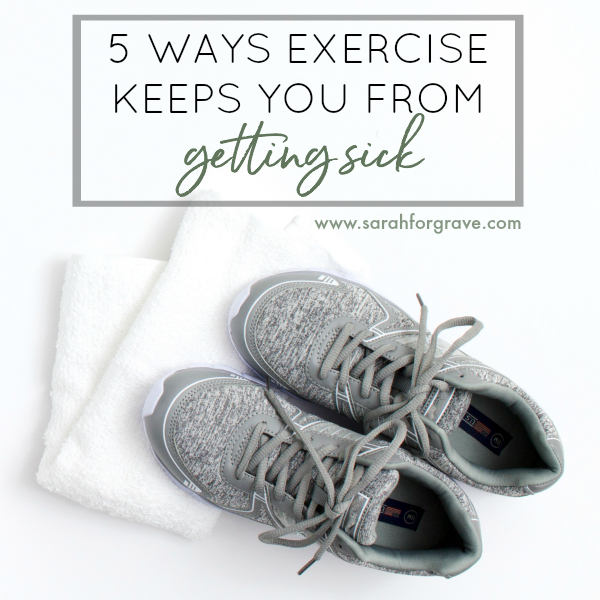We all know exercise is good for us. We’ve probably heard studies and statistics until our ears burn.
But if you’re like me, maybe you tend to forget. Or maybe you hear the studies and stats and think to yourself, “That’ll never happen to me.”
After listening to story after story of clients and family and friends who’ve been rocked by a diagnosis or an unexpected death of a loved one, I’m here to tell you the stats can happen to any one of us.
Yes, a lot of things are out of our control when it comes to our health. But the reality is, a lot of things are within our control too.
In case you’ve forgotten, here are just a few ways exercise can keep you from getting sick. Let these motivate you to lace up your tennis shoes, even if it means going for a 10-minute walk today. Every step counts.
1. Exercise prevents heart attacks.
Aerobic exercise increases the capacity and strength of the heart. Statistics show that people who regularly incorporate aerobic exercise into their lives have less chance of having a heart attack and at least a 4 times greater chance of surviving one. ¹
2. Exercise lowers blood pressure and cholesterol.
According to an article in Prevention magazine, the American Journal of Clinical Nutrition followed more than 300,000 adults for 12 years. Those who exercised at least 20 minutes per day were more than 20% less likely to die prematurely than their sedentary counterparts. The study author concluded that “even a brief amount of physical activity…can have considerable effects on blood pressure, aerobic fitness, and cholesterol.” ²
3. Exercise lowers blood sugar.
With over 29 million Americans dealing with Type 2 diabetes, proactive steps need to be taken to lower its impact. Moderate exercise not only lowers blood sugar levels immediately after exercise, it keeps them lower for the next 24-48 hours. ³
4. Exercise boosts immunity.
Studies have shown that sedentary individuals are more likely to get infections than moderate exercisers. You don’t have to be an elite athlete to reap the benefits of exercise. In fact, this article explains that elite athletes, like marathon runners and triathletes, are actually more likely to catch upper respiratory viruses than people who do moderate exercise each week. ⁴ Bottom line: A little bit each day goes a long way to fighting off illness.
5. Exercise reduces depression and stress.
Exercise releases endorphins that not only boost immunity, but lower perception of pain and improve mood. Certain studies have shown that regular aerobic exercise can work just as effectively as taking antidepressants, and its effects last longer than the pills. ⁵
Still not sure you’ll personally benefit from exercise? Why not give it a try and find out?
As little as 10 minutes of purposeful movement each day can make a difference. Once that becomes a habit, add on to it until you’re getting 30 minutes of exercise a day.
I promise it will be worth it!
(If you don’t know where to start, check out my no-equipment workout you can do right in your own living room.)
———————————
ONE SIMPLE STEP: Take a minute to write down which of these exercise benefits matters most to you and why. Then lace up your tennis shoes and get moving for at least ten minutes today.
ONE STEP FURTHER: If you’re stuck in an exercise rut or want to take it to the next level, commit to trying out a new class or exercise format this week. Better yet, bring a friend along to make it more fun!
———————————
¹ Help for Women Under Stress, Randy and Nanci Alcorn
² Prevention Magazine, June 2015, “Every Minute Counts (Really!)”
³ http://www.health.com/health/condition-article/
⁴ http://paleoleap.com/exercise-immunity
⁵ http://www.health.harvard.edu/mind-and-mood/exercise-and-depression-report-excerpt
*tennis shoes photo by Ivory Mix/CreativeMarket.com
